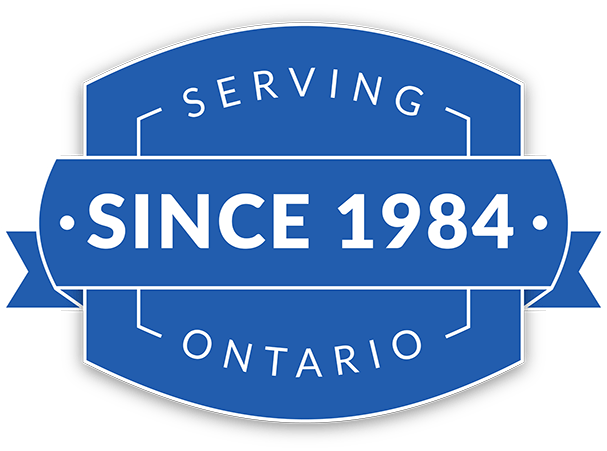
The Hidden Costs of Owning a Car in 2025
Yes, beyond the purchase price, owning a car in 2025 comes with many hidden costs—including depreciation, financing interest, insurance, maintenance and repairs, subscriptions, parking, tolls,...

Embarking on a vacation brings with it the promise of relaxation and adventure, but leaving your home unattended can stir up concerns about security. It’s common to wonder if you’ve locked all the doors or if your home will remain safe in your absence, but the stress of potentially exposed properties can overshadow the thrill of travel.
This guide offers essential steps to secure your home and ensure peace of mind while you explore new destinations or unwind in familiar retreats. Learn how to mitigate risks, enhance your home’s security, and navigate insurance requirements to fully enjoy your well-deserved break without unnecessary worries.
Leaving your home unattended increases susceptibility to various risks that can significantly impact your property and financial stability. The primary concerns include:
Insurance companies typically have stringent requirements for properties considered vacant for extended periods to mitigate these risks. Understanding and adhering to these requirements is crucial to maintaining your insurance coverage and protecting your investment.
Ensure all entry points are secured with high-quality locks and consider installing deadbolts. For sliding doors, use a metal or wooden rod in the track to prevent them from being forced open.
Invest in a smart home security system that includes cameras and motion sensors. These systems can often be monitored remotely via smartphone, offering real-time updates and alerts about your home’s security.
Avoid posting details about your travel plans or current location on social media. Sharing such information can make your home a target for thieves who know you’re away.

Did you know that home break-ins occur every 90 seconds in Canada? (cited)
Imagine Sarah, excited about her backpacking vacation through Europe, shares the countdown on her social media profiles, followed by photos of her trip to the airport and plane ride. Unbeknownst to her, this information is noticed by opportunistic thieves scrolling through public posts. They note her travel dates, knowing exactly when her house will be unoccupied. When Sarah returns, she discovers her home has been ransacked, with valuable items missing. This unfortunate event highlights the risks of sharing travel plans on social media, emphasizing the need for discretion to keep your home safe while you’re away.
Enlist the help of trusted neighbours or community watch programs to keep an eye on your property while you’re away. The presence of vigilant neighbours can significantly deter potential burglars. Encourage them to be alert for any suspicious activity and possibly even park their car in your driveway occasionally to give the appearance that someone is home.
Coordinate with friends or family to regularly check on your home, ensuring it remains secure. Having someone collect your mail, water the plants, or shovel snow from the driveway helps maintain the appearance of an occupied home, which is less enticing to potential intruders. It’s also wise to have them perform a brief inspection of the interior to check for any issues such as leaks or electrical problems that could worsen over time
For those away for extended periods, such as snowbirds or long-term travelers, hiring a professional property monitoring service can be invaluable. These companies provide comprehensive home watch services, from regular check-ups to maintenance tasks. They ensure everything from the structural integrity to the functionality of home systems is maintained and can quickly address emergencies. Such services offer not only peace of mind but also adhere to insurance policy requirements that the home be regularly inspected during the owner’s absence.
Incorporating these layers of community support and professional services enhances the security of your home and ensures it remains a safe haven, no matter how far away you travel.
Understanding your home insurance policy’s terms is crucial, especially regarding unoccupied properties. Most policies have specific conditions about how frequently the home needs to be checked when you’re away to maintain coverage. For instance, some insurers may stipulate that the property cannot be left unattended for more than a certain number of consecutive days—typically 30 to 60 days—without risking policy voidance. Regular check-ins can be required to monitor for any potential issues like water damage or break-ins, which could otherwise lead to uncovered claims. Make sure to thoroughly review these clauses and discuss any unclear points with your insurance broker to ensure your policy remains in force even when your home is unoccupied.
For homeowners planning to be away for extended periods, it’s essential to proactively manage your insurance coverage. Speak with your insurance broker about adjusting your policy to reflect the extended vacancy. This might involve updating your policy to include a vacancy permit, which temporarily adjusts your coverage terms to account for the home being unoccupied. Adjustments might also include enhanced security requirements or specific maintenance activities to be performed periodically, ensuring that your home remains well-protected and your insurance coverage is valid. This proactive communication helps manage potential risks and ensures that you are fully covered under the terms of your updated policy.
Before setting off on your travels, it’s wise to conduct a comprehensive review of your insurance policies with your broker. This review can identify any gaps in coverage that could potentially be exposed by your absence, such as liability limits or the need for additional endorsements to cover specific risks associated with vacant properties. Your broker can offer advice on best practices for protecting your home and maintaining your insurance eligibility, such as installing monitored security systems or using professional property management services. This step is not only about ensuring compliance with insurance terms but also about fortifying your home’s defense against potential threats during your absence.
Even with the best preparations, unexpected issues can arise while you are away from home. Whether it’s a security breach, environmental damage, or a system failure, knowing how to respond swiftly and effectively can mitigate potential damages and simplify the process of dealing with the aftermath. Here’s what to do if you find out something has gone wrong during your absence.
If an issue is discovered, such as a break-in or a water leak, the first step is to ensure the immediate safety and security of the property. Contact local authorities or a property management service to secure the site and assess the situation. If you have a home monitoring system, save any relevant footage that could assist in an investigation or insurance claim. Communicate with your emergency contact—someone local who can inspect the damage and initiate necessary repairs.
Initiating and managing an insurance claim from afar can be challenging but is manageable with the right approach. Contact your insurance provider as soon as possible to report the incident. Provide them with all the necessary details and documentation, including photos or videos if available. Follow their instructions for submitting a claim, and keep detailed records of all communications and receipts related to repairs or replacements. If needed, authorize someone local, like a family member or your designated emergency contact, to act on your behalf if physical presence is required.
Traveling should be a relaxing experience, not marred by worries about what could go wrong at home. By taking the right precautions and knowing what to do in an emergency, you can enjoy your trip with the confidence that your home is secure and any potential issues will be handled efficiently.
Develop comprehensive checklists that cover all necessary preparations before you depart. This should include securing all potential entry points, setting up timed lighting systems, confirming that alarm systems are activated, ensuring that all appliances are turned off or set to safe modes, arranging for mail collection, and informing trusted neighbours of your absence. Double-check that you have all emergency contacts updated and accessible, both for yourself while abroad and for those you designate to monitor your home.
Before you leave, make a point to discuss your travel plans with your insurance broker. Verify that your current home insurance policy is adequate for the duration of your trip, especially if the house will be unoccupied. Ask about specific requirements or recommendations for extended absences, and consider updating your policy to include any additional coverage needed for full protection. This conversation not only ensures you are properly covered but also gives you a direct point of contact who is aware of your situation and ready to assist if issues arise while you are away.

Yes, beyond the purchase price, owning a car in 2025 comes with many hidden costs—including depreciation, financing interest, insurance, maintenance and repairs, subscriptions, parking, tolls,...

Tariffs don’t directly raise your auto insurance premiums, but they do make car repairs more expensive—and higher repair bills often translate into higher insurance rates....

Yes, studies show that keyless cars are more likely to be stolen in Ontario due to “relay attacks,” where thieves amplify your fob’s signal to...

No obligation, just great information!
